The Ocean as Tanzania’s Next Classroom
The ocean has always been humanity’s oldest classroom—an endless expanse of mystery, power, and life. But for a long time, that classroom has been closed to most local coastal communities. Action for Ocean (AFO), a Tanzanian youth-led conservation organization, is changing that.
In 2025, AFO has reached a major milestone: becoming a certified PADI Educational Facility—the first of its kind operated by a local NGO in Tanzania. That certification isn’t just a shiny badge on the wall; it’s a door flung open. It means that local youth, women, and coastal residents can now receive globally recognized diving education and professional certification right from their own shores, learning to protect the ecosystems they depend on.
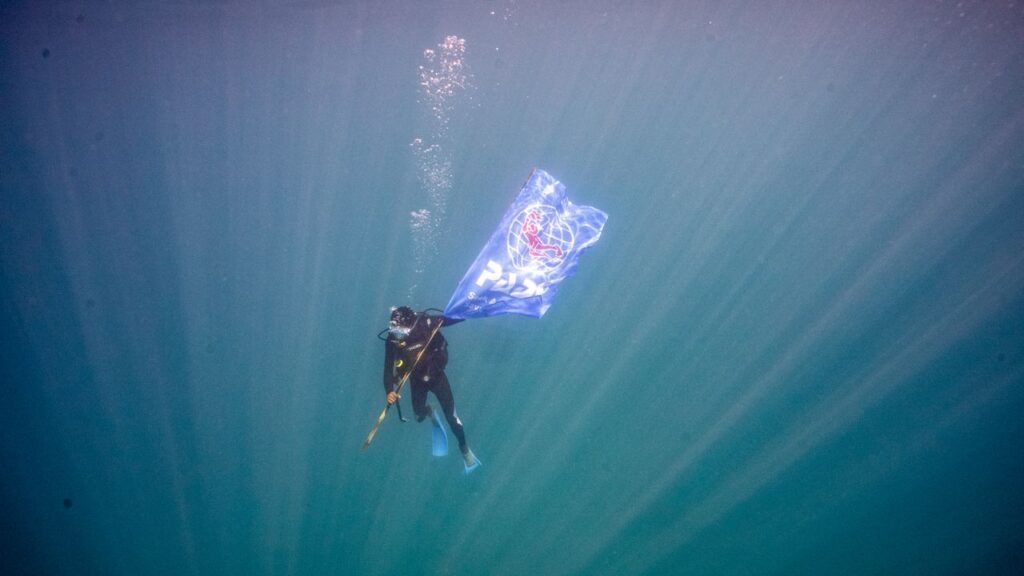
This article dives deep into what that certification really means—for AFO’s mission, for Tanzania’s ocean future, and for every young diver who dares to descend beneath the waves.
Understanding What a PADI Educational Facility Is
The global gold standard in diving education
PADI—the Professional Association of Diving Instructors—is the world’s largest and most respected diver training organization. With over 6,600 dive centers worldwide, its certifications are recognized everywhere from the Maldives to Mexico. To become a PADI Educational Facility, an institution must meet rigorous international standards in safety, training, instructor competence, and environmental ethics.
AFO has joined world’s network of ocean educators
By securing PADI Educational Facility status, AFO’s PADI Educational Facility in Kilwa is now authorized to provide official PADI dive courses—from beginner to professional levels. The program aligns with global standards while being rooted in local realities, offering young Tanzanians access to the same credentials as divers in any other part of the world.
Raising the bar for marine training in East Africa
This certification puts AFO among a small but growing group of African organizations bridging the gap between conservation and professional diving. It transforms the coast from a place of observation to a place of participation, where Tanzanians can learn, earn, and lead in their own blue economy.
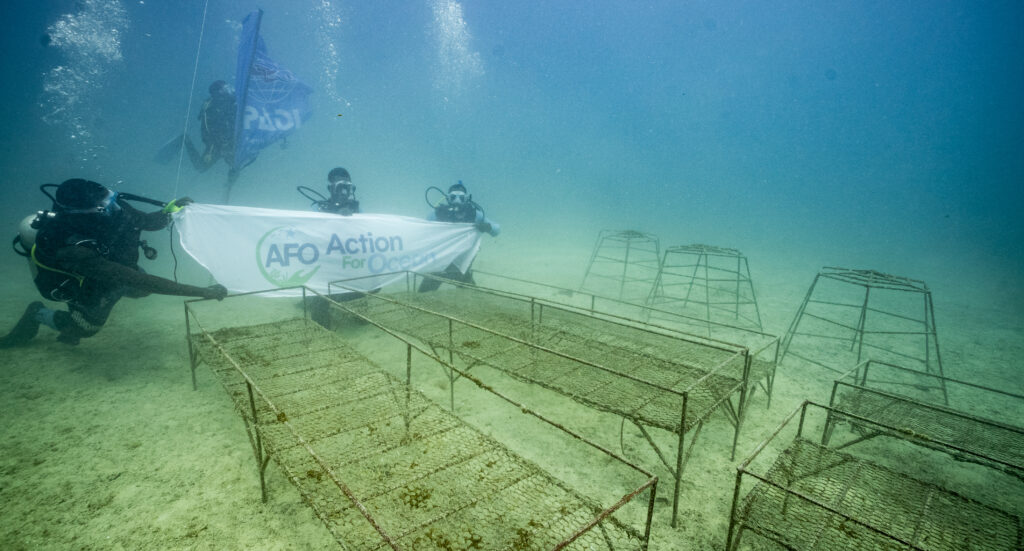
The Story Behind AFO’s Tanzania DiveLab Journey
AFO’s story began not in deep waters but in the curiosity of young scientists determined to make marine conservation accessible to everyone.
Tanzania DiveLab under the AFO’s Underwater Programme, emerged from a simple realization: “you can’t protect what you can’t see”, a statement from the forefather of the Ocean Access Programme under Africa Refocused, a collaboration between NEWF and National Geographic Society, Noel Kok.
Now in this sense, to plant corals, monitor reefs, or document biodiversity, you need diving skills. And yet, for most coastal youth, diving was a luxury foreign, expensive, and out of reach let alone marine scientists.
So AFO built a direction from the bigger dream. The Tanzania Divelab was born as a local training ecosystem that merges scientific diving, storytelling, community education, and conservation entrepreneurship.
Now, as a certified PADI Educational Facility, Tanzania DiveLab’s legitimacy is global. Communities can now become professional divers, instructors, underwater researchers, and blue-economy entrepreneurs, all while staying rooted in their communities.
Why PADI Certification Matters for AFO’s Mission
In the coming 5 years AFO will stand at the forefront of a new era of ocean leadership, where restoration, governance, and livelihoods flow together and most critically Locally-led.
Through its PADI Educational Facility located in the Southern coast, Kilwa Masoko, a generation of Tanzanian divers will lead the recovery of more than 20 km² of coral reefs, transforming coastal waters into living classrooms and engines of resilience.
These certified professionals will serve as the nation’s “eyes underwater,” strengthening governance, protecting Marine Managed Areas, and advancing Tanzania’s Blue Economy. At the same time,the Tanzania DiveLab will create over 150 professional divers and 100 divemasters, turning conservation into careers and passion into purpose.
The future is clear: This is ocean protection that pays—where conservation generates livelihoods and livelihoods sustain conservation.
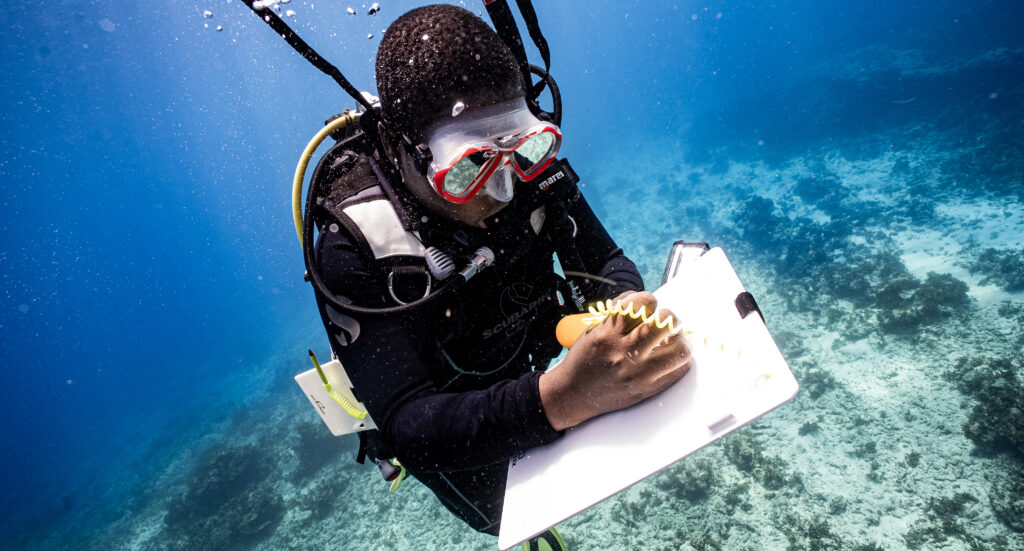
Aligning with National and Global Blue Economy Agendas
Tanzania’s Blue Economy and Fisheries strategies emphasize youth inclusion, marine governance, and sustainable livelihoods. AFO’s PADI facility operationalizes those policies at the community level.
Globally, it aligns with the UN Ocean Decade (2021–2030) and Sustainable Development Goal 14 – Life Below Water, bridging local action with global priorities. The facility positions Tanzania as a regional hub for ocean literacy and capacity-building.
Reclaiming Local Leadership Beneath the Waves
For too long, East Africa’s underwater world was narrated by outsiders. Research, film, and conservation were often led by foreign divers. AFO’s certification flips that narrative.
Now, the people swimming in Tanzania’s coral gardens are the same ones who fish, farm, and raise families along its shores. They are divers, scientists, and storytellers rolled into one—custodians of the sea they call home.
This shift redefines what local leadership in conservation looks like: authentic, skilled, and homegrown.
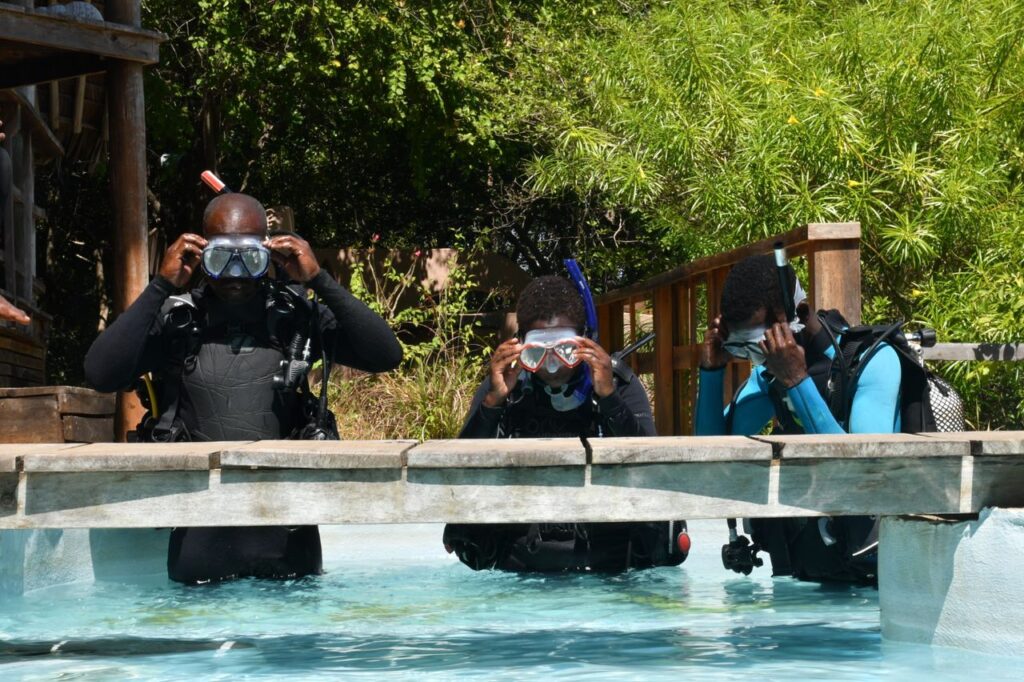
AFO’s Vision 2030: The Ocean Belongs to Everyone
Imagine a coastline where every fishing village has a certified diver; where coral restoration isn’t led by foreign experts, but by locals who grew up swimming in those waters. That’s AFO’s dream—a Tanzania where ocean access equals opportunity.
The ocean is not a foreign frontier anymore—it’s home, a livelihood source, and the future.
We are merging world-class diving education with local leadership. AFO has turned the ocean from a barrier into a bridge. It’s equipping young people with the tools, credentials, and confidence to earn a living while restoring life below water.
FAQs
1. What is a PADI Educational Facility and why does it matter?
It’s a globally recognized training center licensed by the Professional Association of Diving Instructors (PADI) to deliver official scuba courses and professional certifications. For AFO, it means being able to train and certify divers locally, ensuring quality and safety at international standards.
2. How will AFO’s certification benefit our Tanzanian communities?
It opens up new career paths in marine conservation, ocean storytelling, eco-tourism, and marine research, while empowering youth and women with employable skills and ocean literacy.
3. Can anyone join AFO’s diving programs?
Yes. The program welcomes coastal youth, women, and community members aged 18–45. Fellowships and community-based cohorts make it accessible to those who previously couldn’t afford such training(normally communicated).
4. What’s the connection between diving and marine conservation?
Certified divers collect data, restore reefs, and monitor ecosystem health—activities vital for conservation science and policy. Diving turns observation into measurable action.
5. How does this milestone support AFO’s 2030 goals?
It advances all three pillars of AFO’s strategy: restoring ecosystems through skilled divers, improving governance by building local stewardship, and strengthening livelihoods through blue-economy jobs.

Javis Bashabula
Communications and Knowledge Management Lead
